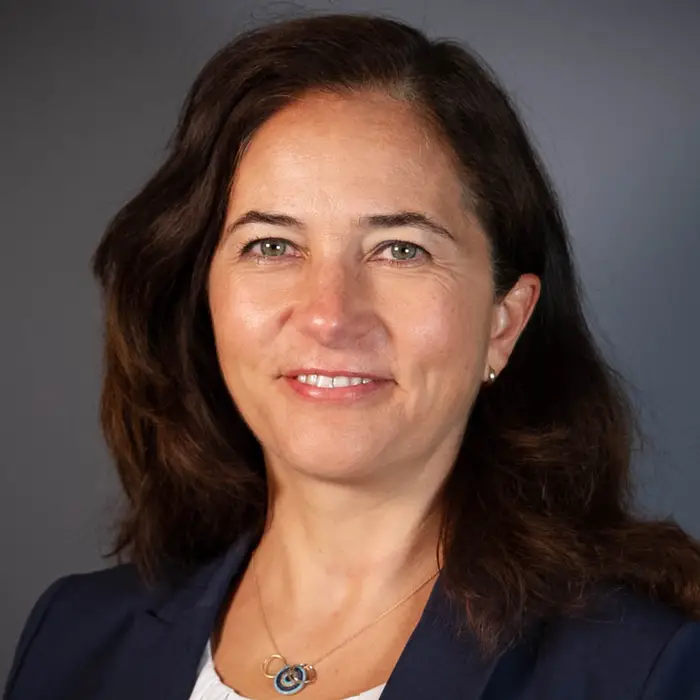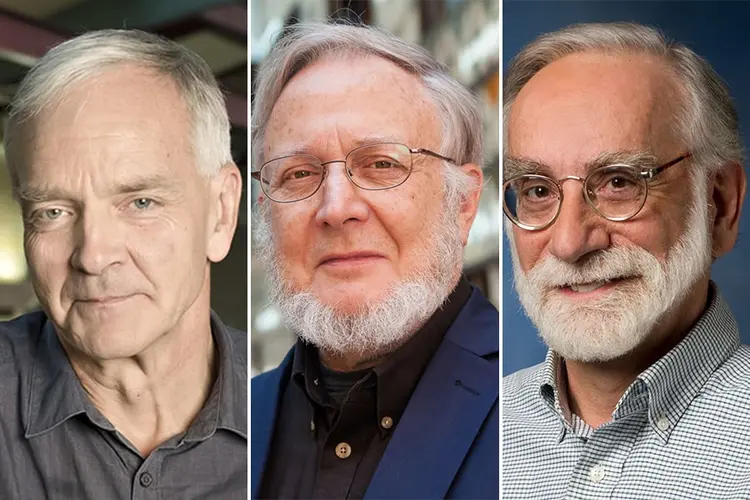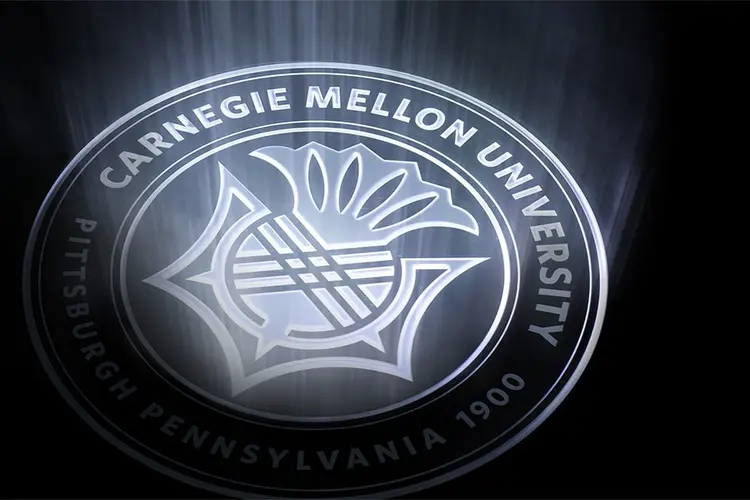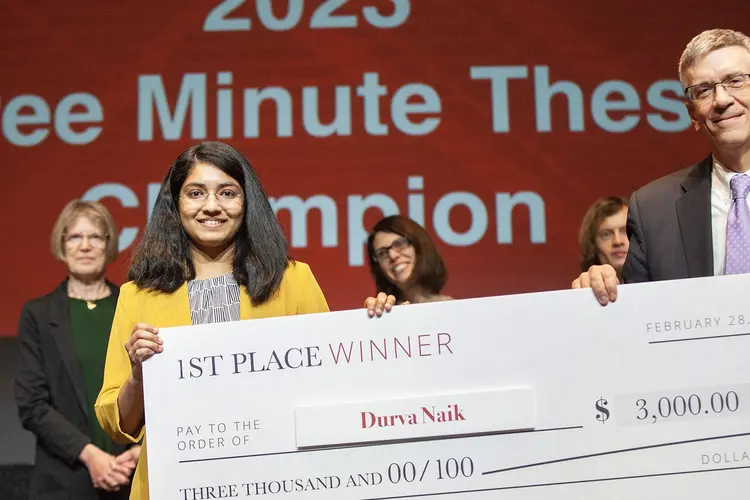CMU Names Five University Professors
Media Inquiries
Five Carnegie Mellon University faculty members have been elevated to the rank of University Professor(opens in new window), the highest distinction a faculty member can receive at Carnegie Mellon.
The newly appointed University Professors are Burcu Akinci, Lorrie Faith Cranor, Greg Lowry, Mark Stehlik and Michael Tarr. Stehlik is the first teaching-track professor to be named a University Professor.
“University Professors are individuals who embody the mission of CMU through their contributions to education and research, as well as their strong commitment to the community,” said Provost and Chief Academic Officer James H. Garrett Jr. “This year, we were pleased to identify five individuals who demonstrate this high standard every day as educators and leaders at the university.”
University Professors are distinguished by international recognition and for their contributions to education, artistic creativity and/or research. These individuals exemplify this high level of achievement and commitment to the university and the broader academic communities.
Burcu Akinci
Burcu Akinci(opens in new window) is the Paul Christiano Professor and department head of Civil and Environmental Engineering(opens in new window) in the College of Engineering(opens in new window).
Akinci is a member of the National Academy of Construction, a fellow of the American Society of Civil Engineers (ASCE) and a fellow of the American Association for the Advancement of Science (AAAS). She earned a bachelor’s degree in civil engineering from the Middle East Technical University, a master’s degree from Bilkent University and master’s and doctorate degrees in civil and environmental engineering with a specialization in construction engineering and management from Stanford University.
Her research interests lie in modeling and reasoning about information-rich histories of buildings and infrastructure systems to streamline construction and infrastructure operations. She specifically focuses on investigating the utilization and integration of building information models with data capture technologies, such as 3D imaging and embedded sensors, on creating digital twins of construction projects and infrastructure operations and developing approaches to support proactive and predictive operations and management.
Akinci has two patents, one provisional patent, over 80 refereed journal publications and 120 refereed conference publications. She served in two National Academy of Sciences studies and is currently a member of the National Academies Board on Infrastructure and the Constructed Environment.
Lorrie Faith Cranor
Lorrie Faith Cranor(opens in new window) is the director and Bosch Distinguished Professor in Security and Privacy Technologies of CyLab(opens in new window) and the FORE Systems Professor of Computer Science(opens in new window) and of Engineering and Public Policy(opens in new window). She co-founded and co-directs the world's first Privacy Engineering master’s program and was founding co-director of the Collaboratory Against Hate: Research and Action Center(opens in new window).
Cranor's research focuses on usable privacy and security with contributions in a variety of areas including anti-phishing technologies, usable and secure password policies, privacy "nutrition" labels, and tools to make it easier for people to protect their privacy and security. She founded the Symposium on Usable Privacy and Security and co-founded the Conference on Privacy Engineering Practice and Respect.
Cranor has been named a fellow of the Association for Computing Machinery (ACM), the Institute of Electrical and Electronics Engineers (IEEE), and AAAS, as well as an Andrew Carnegie Fellow and a member of the ACM CHI Academy. She received the 2022 Carnegie Mellon University Distinguished Professor of Engineering Award, the 2018 ACM CHI Social Impact Award, the 2018 International Association of Privacy Professionals Privacy Leadership Award, and (with colleagues) the 2018 IEEE Cybersecurity Award for Practice and 2019 Allen Newell Award for Research Excellence.
In 2016 Cranor served as chief technologist at the U.S. Federal Trade Commission. She is also a co-founder of Wombat Security Technologies, Inc., a security awareness training company that was acquired by Proofpoint. Prior to joining the CMU faculty in 2003, Cranor was a researcher at AT&T Labs and taught in the Stern School of Business at New York University. She holds a doctorate in engineering and policy from Washington University in St. Louis. In 2012 and 2013 she spent her sabbatical as a fellow in the Frank-Ratchye STUDIO for Creative Inquiry(opens in new window) where she worked on fiber arts projects, including a quilted visualization of bad passwords(opens in new window) that was featured in Science as well as a bad passwords dress(opens in new window) that she frequently wears when talking about her research.
Greg Lowry
Greg Lowry(opens in new window) is the Walter J. Blenko, Sr. Professor and executive director of new initiatives in the Department of Civil and Environmental Engineering(opens in new window).
His transdisciplinary research in environmental chemistry and nanotechnology is addressing important global sustainability challenges in agriculture, environmental remediation and energy production.
He is currently an executive and associate editor of the American Chemical Society (ACS) Journal of Environmental Science & Technology. He serves on the editorial boards of the ACS journal Environment & Health; the Royal Society of Chemistry journal Environmental Science: Nano; and Nature: Scientific Data.
Lowry is a fellow of the AAAS and a fellow of the Association of Environmental Engineering and Science Professors (AAESP). He has published over 200 peer-reviewed scientific articles and is a “highly cited” scientist (top 1%) in the areas of ecology and environment. He has received awards for his research from the American Academy of Environmental Engineers and Scientists (Science Award), the ASCE (Walter L. Huber Civil Engineering Research Award) and the AAESP (Malcolm Pirnie/AAESP Frontiers in Research Award). He received Distinguished Service awards from the AAESP in 2018 and 2022 and was awarded the Fenves Award for Systems Research in 2011.
Lowry holds a bachelor’s degree in chemical engineering from the University of California, Davis, a master’s degree in civil and environmental engineering from the University of Wisconsin-Madison, and a doctorate in civil and environmental engineering from Stanford University. He holds a doctor honoris causa from Aix-Marseille University.
Mark Stehlik
Mark Stehlik(opens in new window) is the director of the Computer Science (CS) undergraduate program and assistant dean of outreach of the School of Computer Science(opens in new window). He is the first teaching-track professor to be named a University Professor.
In 1979, Stehlik began as a Ph.D. student in computer science at CMU and began teaching here in 1982. Stehlik is one of the few administrative faculty members involved in the CS undergraduate program within the School of Computer Science since its creation in 1988. One of the key factors of SCS’s success, Stehlik said, was that Carnegie Mellon already had one of the best Ph.D. programs in computer science.
As assistant dean, he works to both strengthen its programs, as well as to attract and support students including being the co-founder of CMU CS Academy(opens in new window) which has been consumed by over 275,000 high school students since its launch in 2018. As an adviser, he has shepherded more than 3,500 students through the undergraduate computer science program.
Stehlik is the recipient of CMU's Robert E. Doherty Award for Sustained Contributions to Excellence in Education, the CMU Outstanding Contributions to Academic Advising and Mentoring and SCS's Herbert A. Simon Award for Teaching Excellence.
Michael Tarr
Michael Tarr(opens in new window) is the Kavčić-Moura Professor of Cognitive and Brain Science, head of the Department of Psychology(opens in new window), professor of psychology and the Neuroscience Institute(opens in new window), and professor of machine learning(opens in new window) (courtesy).
Tarr has made scientific contributions in the areas of cognitive neuroscience, cognitive science and computational and artificial vision systems, collaborating with trainees and faculty from disciplines spanning psychology, neuroscience, statistics/applied math, machine learning and robotics. Along with several colleagues and students, he articulated the image-based approach to visual object recognition which has become a standard account for how human perceivers are able to recognize objects across changes in appearance. Similarly, he and his collaborators developed the influential expertise theory of face identification, perhaps the most mechanistically grounded account for how face-selectivity arises in the human brain.
More broadly, over many decades, he has been a leader in building meaningful connections between the study of natural and artificial vision and has been at the forefront of introducing new methods in the study of vision, including the use of realistic computer graphics for stimulus creation and the collection of large-scale human neuroimaging data using natural images. He has also been a promoter of open science, including founding the still-active Object Perception, Attention and Memory conference for young investigators (now in its 4th decade) and creating and publicly sharing a wide variety of stimulus sets, code and large-scale neuroimaging data sets.
Under his administrative leadership at Carnegie Mellon, Tarr introduced a variety of university initiatives that have had wide impact on the CMU community. Most recently, he co-developed the new Dietrich Scholars program with a focus on diversity, equity and inclusion with the goal of providing greater support for diverse Ph.D. students. He was instrumental in developing and launching both the uniquely cross-college undergraduate neuroscience major and the world-class Neural Computation/Machine Learning Ph.D. program. He has also been involved in a variety of CMU initiatives across the brain and behavioral sciences. In both his science and administrative roles, Tarr has worked to cross disciplinary boundaries collaborating with colleagues and trainees throughout the university.







